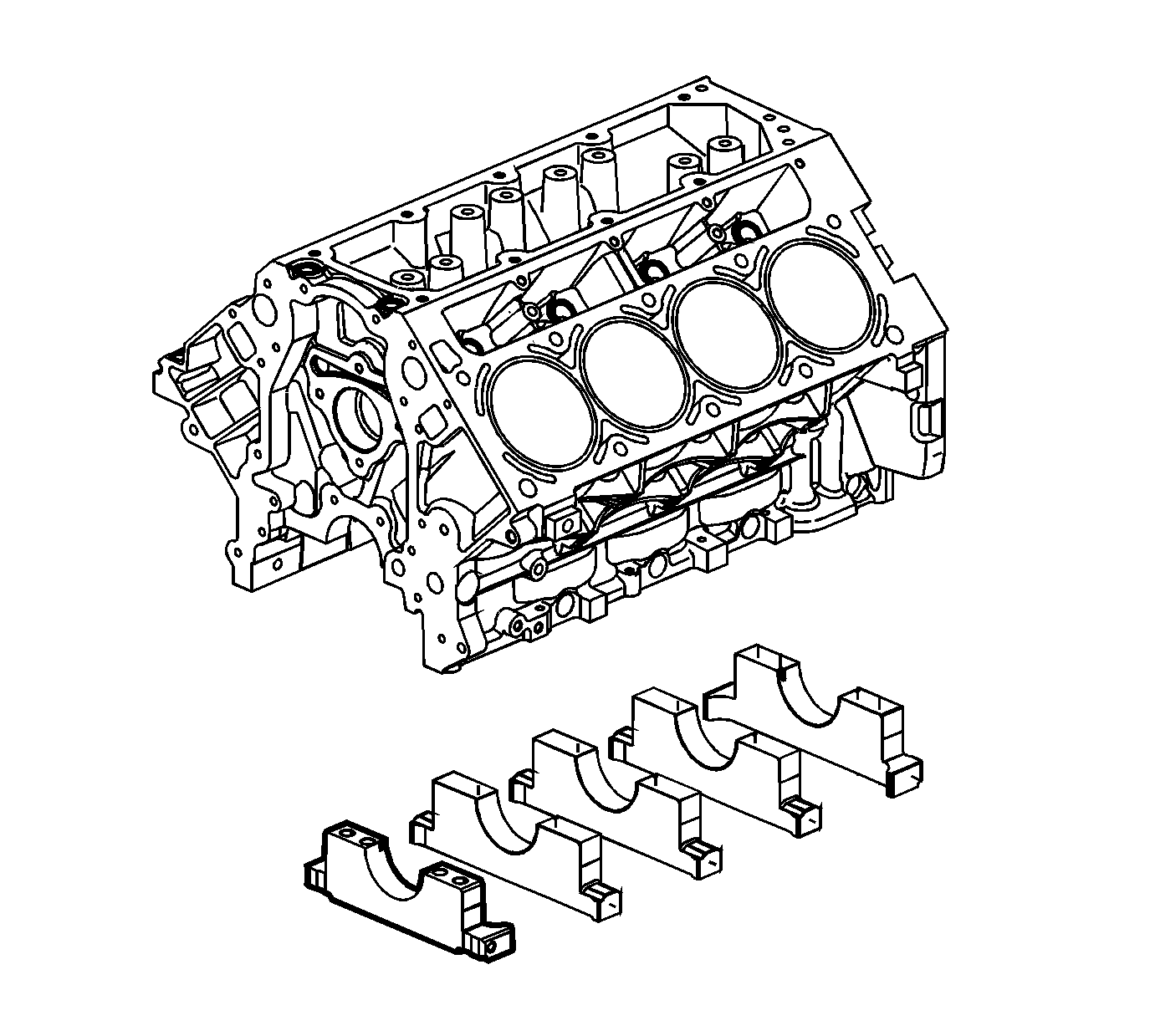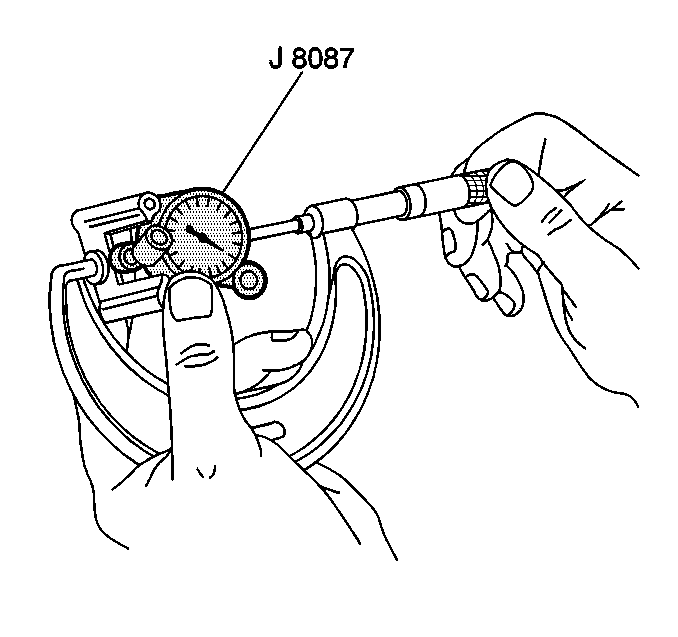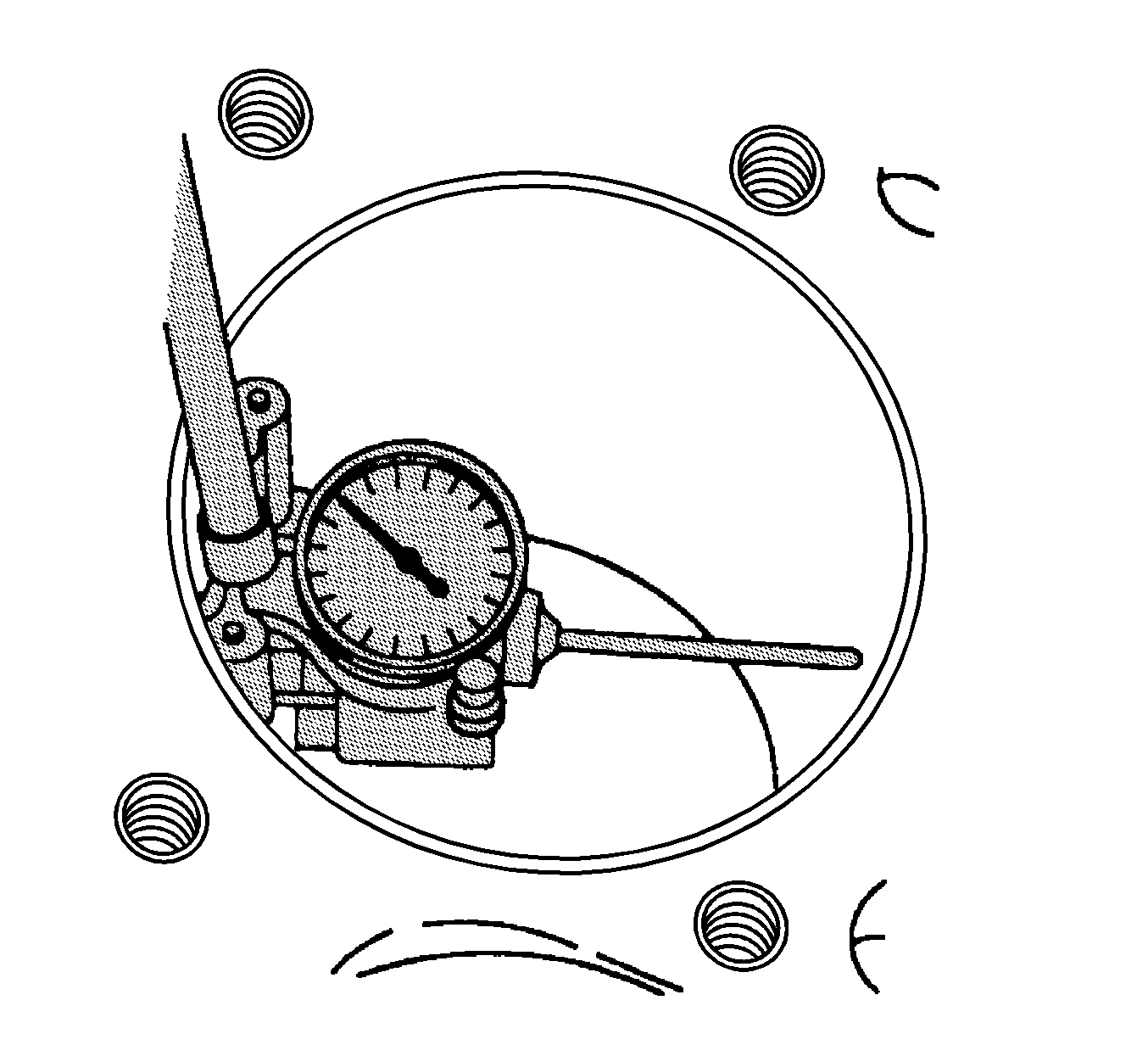Special Tools
| • | J 8087 Cylinder Bore Gage
|
| • | J 42385-100 Head/Main Bolt Thread Repair Kit
|
For equivalent regional tools, refer to
Special Tools.
Cleaning Procedure

Caution: Do not use a caustic solution to clean the aluminum engine block.
Note: When cleaning the engine block in a thermal type oven, do not exceed 232°C (450°F).
Clean the following components:
| • | Remove all sludge, dirt, or debris using a cleaning solvent or thermal type oven. Refer to
Cleanliness and Care. |
| • | Cylinder head bolt holes to remove threadlocking material |
| | Thread repair driver tool J 42385-107 may be used to clean the threads of old threadlocking material. |
Inspection Procedure
- Inspect the following components:
| • | Cylinder walls for excessive scratches, gouging, or ring ridge |
| • | Cylinder bores for excessive ring ridge at the top of the cylinder |
| • | Coolant jacket for cracks |
| • | Valve lifter bores for excessive scoring or wear |
| • | Crankshaft bearing webs for cracks |
| • | Gasket sealing surfaces for excessive scratches or gouging |
| • | Oil galleries for restrictions |
| • | Threaded bolt holes for damaged threads |
| • | Scoring or damage to the displacement on demand oil passages or sealing surfaces |
- Measure the cylinder bores for excessive ring ridge at the top of the cylinder.
Measuring the Cylinder for Oversize

- Adjust the micrometer to a dimension slightly smaller than the bore size. Refer to
Engine Mechanical Specifications.
- Insert the
J 8087 gage
bore gage into the micrometer and zero the bore gage dial.

- Using the
J 8087 gage
, measure the cylinder bore for oversize.
Slide
the bore gage up and down throughout the length of the cylinder bore. Measure the bore both parallel and perpendicular to the centerline of the crankshaft at the top, center, and bottom of the bore. A cylinder bore that exceeds the maximum diameter must be serviced
with an oversized piston. Refer to
Engine Mechanical Specifications.



